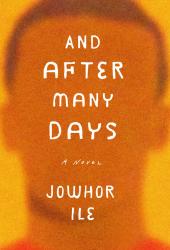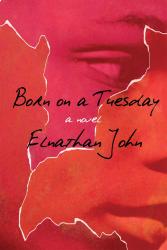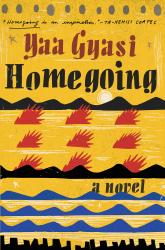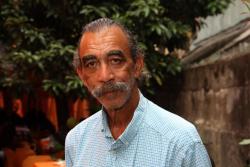


There has been much talk lately of a renaissance in Nigerian literature. Hardly a year passes without yet another young writer winning yet another international prize. This renaissance is measured against the writers who came of age around the time of independence from British colonial rule, in 1960—notably Wole Soyinka, who won the Nobel Prize in 1986, and Chinua Achebe, whose seminal novel, Things Fall Apart, earned him the sobriquet “the father of African literature.” The successors of that generation, if that is what they are, came of age at the turn of the millennium, the country having meanwhile supped full with horrors: civil war shortly after independence, followed by decades under the military jackboot.
Here is Jowhor Ile in his debut novel, And After Many Days, describing a scene in Port Harcourt in 1995:
That was when one of the corporals saw a boy who could have been a university student; he was carrying a knapsack. The area was deserted now, and the boy was walking briskly between the stones and the tear gas. The corporal thought he looked suspicious… . “Hey-shhh, come here.” The boy acted like he didn’t see or hear the corporal. “Hey-shh, you there carrying bag, come here now!” The boy kept walking. The corporal rushed toward him in a fit of rage and whacked the boy from behind with the butt of his gun at the base of the neck, and the boy went down at once.
Paul, the seventeen-year-old boy in question, dies as a result of the blow, but his parents and siblings do not know this. All they know is that he had stepped out to visit a friend and never returned. The tension surrounding his disappearance is meant to track the larger politics of the time. The year 1995 was a seminal one for Nigeria, the political turning point when General Sani Abacha—the latest in a long line of military strongmen, who nonetheless claimed to embody a “duly constituted authority”—allowed Ken Saro-Wiwa and eight of his fellow activists, known as the Ogoni Nine, to be executed by military decree despite an obviously flawed trial, thereby turning what had been a peaceful insurgency into a violent one. (As Saro-Wiwa himself put it, “The men we are dealing with are mindless, Stone Age dictators addicted to blood.”) More galling was the fact that the general helped annul what many agree was the freest and fairest election in the country’s brief history, and then imprisoned the presumed winner.
Tension in the house, tension in the land: Unfortunately, tension is what Ile’s novel lacks. Ajie, the protagonist and Paul’s younger brother, is the last member of the family to have seen Paul alive. As the story unfolds, Ajie occasionally interrupts the narrative to remind us that he is full of guilt—that he wishes he had paid more attention to Paul’s last words—but only after he has taken us on yet another long detour of life in the household before his brother went missing. Paul himself comes across as an exemplary figure—invariably top of his class and always even-handed when settling disputes between Ajie and their sister, Bibi (the subject of even more detours). We do get occasional glimpses of the world outside the household—when, for example, Ajie accompanies his mother to the market to buy provisions for school. For the most part, however, we must make do with heated conversations between adults in the parlor (the parlor looms large in this family drama).
Ile’s novel is set in Nigeria’s predominantly Christian south, the region from which the bulk of the country’s English-language writers hail. Until recently, there has been no literature in English of any significance in the predominantly Islamic north, where Hausa is the lingua franca (and where a Hausa-language literature of the Mills & Boon variety thrives). This explains at least part of the excitement over Elnathan John’s Born on a Tuesday, which affords non-Hausa speakers a view of life in that part of the country. It also happens to be timely.
The novel is told in the first person and centers on the experiences of one of the almajiri, the boys sent away by impoverished farmers (who marry too many wives who have too many children) to study with Islamic preachers. These boys learn the Quran by rote—in Arabic, a language not spoken in Nigeria—along with a hatred of all things modern. Unsurprisingly, they have proven to be a reliable source of recruits for Boko Haram, the Islamic insurgents currently terrorizing the northeast of the country.
We first meet Dantala (literally, “born on a Tuesday”) when he falls in with a group of street urchins (as we like to dub them) who are paid to burn down the offices of the opposition party in the run-up to an election. They are eventually confronted by the police, who open fire on them. Dantala flees to Sokoto—his home state and the seat of the caliphate—and meets up with a moderate preacher, Sheikh Jamal, whose worldview he quickly accepts as gospel. “This country is a slave to Jews and their usury,” he tells Dantala, and adds: “This is why the West pushes our leaders to make laws that force us to go to Western schools at an early age, so they can teach our children that this system of the Jews is the best and by the time they learn otherwise it is too late.”
Loyal and bright, Dantala quickly finds favor with his master, eventually becoming a confidant of sorts. In due course, he entertains hopes of marrying Sheikh Jamal’s daughter, Aisha, who at first appears to welcome his advances (although the sheikh himself is not so sure; there are limits, after all). But before Dantala can summon up the courage to propose, the violence he sought to escape catches up with him, in the person of another preacher: Malam Abdul-Nur, whom the sheikh had once befriended and hoped to reform, but who, following a trip to Saudi Arabia, is contemptuous of his mentor’s pussyfooting about dealing with infidels in their midst.
By and by, Malam Abdul-Nur establishes his own cult. He chops off hands and terrorizes villagers before sending his followers to behead Sheikh Jamal. In the ensuing conflagration, soldiers from nearby barracks are deployed to do what they do best: terrorize the citizens they are paid to protect. Dantala is arrested, tortured, and then unexpectedly released. Returning to Sheikh Jamal’s now ruined compound, he happens upon a flyer announcing Aisha’s impending marriage to one Alhaji Usman, a shadowy politician who had bankrolled her father until Usman had no more need of him.
Born on a Tuesday is a bleak, unrelenting novel about hopelessness in a country without purpose or direction. The authorities do not care whether children go to school or not, or what kind of education they might receive, because children are simply fodder for the inheritors of the colonial state—a state that crushes them when they step out of line. And yet, through Dantala, who is realized in crisp, sharp prose, John manages to convey something about the integrity of a single life. There is, too, a sense of inevitability about the unfolding tragedy, which makes this novel a sobering but not entirely depressing telling of what is otherwise a depressing phenomenon.
Elnathan John has been rightly paired with Abubakar Adam Ibrahim, the other emergent voice from the north, although Ibrahim’s novel, Season of Crimson Blossoms, could hardly be more different. Where John’s language is spare, Ibrahim’s is lush, beginning with the very first sentence: “Hajiya Binta Zubairu was finally born at fifty-five when a dark-lipped rogue with short, spiky hair, like a field of miniscule anthills, scaled her fence and landed, boots and all, in the puddle that was her heart.” Nonetheless, both novels—along with, say, A. Igoni Barrett’s Blackass—share a nuanced approach to their material, eschewing the didacticism that tended to mar much of earlier Nigerian literature. Politics intrude, to be sure—it could hardly be otherwise, given the facts on the ground—but it never feels intrusive.
The reason isn’t difficult to deduce. In the immediate aftermath of Nigeria’s independence, the political landscape was at once simpler and more urgent than before. The colonizer had been thrown out—or, more accurately, had conceded that, in the aftermath of Word War II, oppressing others was no longer feasible—and the heady optimism in Nigeria that followed promised a brave new world of self-determination, one that was duly charted by the country’s emerging writers. For their successors, born into an independence that quickly fell apart, there could be no easy solutions. Some even repudiated the notion that they could do anything to prevent what increasingly looked, and still looks, like a gradual slide into chaos. “I’ve never voted in Nigerian elections,” A. Igoni Barrett told me last year. “I’m less an apathetic voter than a thoroughly disillusioned citizen.” I hazard that most of his colleagues are equally disillusioned about the country’s journey so far.
So the renaissance in African literature is real enough, and not only in Nigeria. Of the Anglophone countries, Kenya and South Africa have made good showings, along with Zimbabwe. But Ghana is not far behind, as evidenced by the publication of Yaa Gyasi’s Homegoing. Her novel has received considerable publicity on account of her age (she is just twenty-six) and the “seven-figure sum” she is rumored to have secured—as has another new voice, Imbolo Mbue, from neighboring Cameroon, for her own debut novel, The Longings of
Jende Jonga.
Homegoing is set alternately in Ghana, where the author was born, and the US, where she grew up and currently lives. Two half-sisters, Esi and Effia, are born into different villages in eighteenth-century Ghana. Esi is captured to be sold as a slave, and kept in a dungeon underneath a fortress on the coast before being transported to the New World. Effia is married off to the Englishman in charge of the fortress, who sires with her a “half-caste” son, as Esi (unbeknown to Effia) languishes underground. Two plots form through alternating chapters: One follows Effia’s descendants through warfare as the “tribes” wrestle with the slave trade and the Englishmen who would have their daughters; the other follows Esi and her descendants as they make their way from plantations in the American South— through the Civil War and the Great Migration—to the coal mines of Alabama and the jazz clubs and dope houses of twentieth-century Harlem.
Homegoing has already received fulsome praise from, among many others, Ta-Nehisi Coates, who admires Gyasi’s “gifted literary mind” as it applies itself to “an epic task.” The novel is certainly ambitious, but I found the writing curiously opaque. Take the following passage from a chapter on one of Esi’s descendants, a hulk of a man simply known as “H,” who is forced to work in a mine, more or less as a slave, even though the Civil War is long over:
With his shovel arm, H and the other men were lowered some 650 feet down the shaft, into the mine. Once in the underground city, they travelled three, five, seven miles to the coal face where they were to work that day. H was large, but nimble. He could lie on his flank and shimmy himself into nooks and crannies. He could crawl on his hands and knees through tunnels of exploded rock until he got to the right room.
Later, we are told that, “With his own shovel in one hand and Thomas’s shovel in another, H had filled both men’s quotas, the pit boss watching all the while.” I haven’t been down a coal mine, but given H’s size—“He’s a big one, ain’t he”—he’s clearly at a distinct disadvantage underground. And thus Gyasi’s bland description of him shimmying into nooks and crannies makes one distrustful of all the other set-pieces designed to evoke what it was really like to be there—to be holed up in an underground dungeon, or to be transported to work as a slave on a plantation in the antebellum South. There is, in all these descriptions, a want of detail.
Matters are not helped by the publisher’s free and easy use of “tribal” in the publicity material accompanying the novel, nor by the author’s use of “half-caste” in the novel itself, both being offensive to Ghanaians (along with other Africans), as the author herself should know. But then the publisher isn’t looking to sell copies in Ghana, any more than the publishers of Ile and John are in Nigeria. And while it is true that no writer ever got anywhere publishing out of Lagos or Accra, it is also true that an African writer only has to make it “in Abroad” (as we like to put it) to be feted back home—testimony to a colonial mind-set that did not end with the departure of the colonial power and that may be the reason for our continuing predicament.
This goes to the heart of the ongoing debate in African literary circles: Who validates what is or is not authentically African (or, better, Nigerian or Ghanaian)? And if London and New York are indeed the ultimate arbiters of this authenticity, then it should come as no surprise that many such novels would appear to have less to do with the continent itself than with the centers where they are published. Homegoing is a good example. Although it straddles Ghana and the US, the more vivid sections concern the latter. By contrast, Imbolo Mbue’s The Longings of Jende Jonga is set wholly in the US.
There is nothing intrinsically sinister in this. African writers are free to write about whatever place they like, as their Euro-American colleagues have been doing for centuries. Indeed, there is much to be said for African writers breaking out of the ghetto, as it were, and engaging with the wider world, especially if, like Gyasi, they also happen to be living there. On the other hand, it is difficult to see how a truly national—or continental—literature can be forged in foreign climes, unless I’m missing something about the global village to which we are constantly told we all belong.







